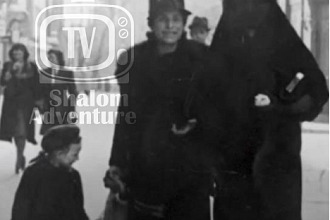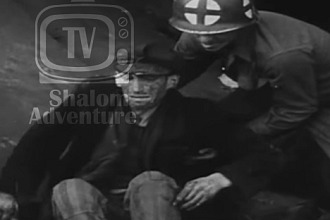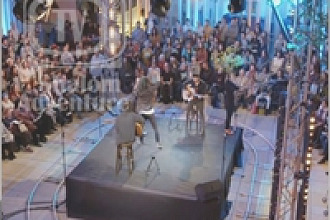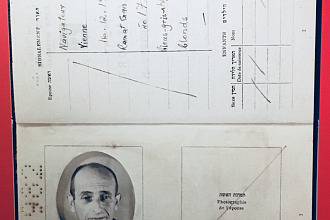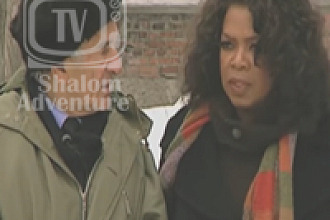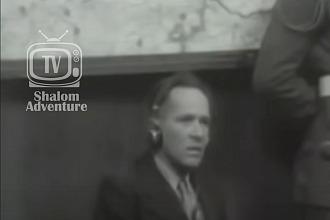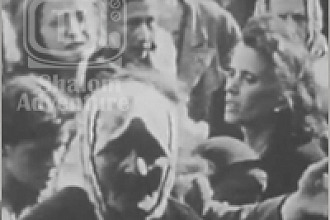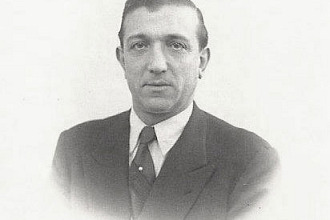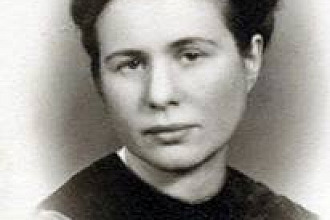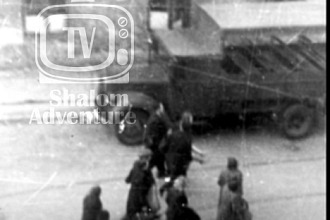As the deportation of Jews from neighboring countries and territories was underway, the Jews of Bulgaria, a Nazi ally during WWII, were spared. Because of the stand taken by everyday Bulgarian citizens and the Bulgarian Orthodox Church against Nazi pressure to deport and murder of millions of Jews, not a single one of Bulgaria’s 48,000 Jewish people was ever deported to a concentration camp during the Second World War.
“We have an example of the power of the common man to stop genocide,” Jacky Comforty, director of a 2001 documentary illustrating Bulgarian resistance to Hitler’s "final solution," reported to the Washington Post. “It’s such a unique story; we can inspire people to stand up for what is right everywhere.”
While the Bulgarian Jewry was spared the horrors of Treblinka and the like, some Jews, such as Comforty’s father, did serve time in forced labor camps within Bulgarian national borders, the Washington Post continued. Jews were taken from their beds at all hours of the night by gunpoint to be gathered at schools and other locations awaiting deportation. Boxcars did enter the country under the orders of Adolf Eichmann with intent to transport Jews to their death.
Unlike Poland, Czechoslovakia, the Netherlands, and other European nations who surrendered their Jewish people to the Fuhrer’s demands however, the resistance of an united Bulgarian citizenry and the church ultimately prevented this tragedy.
Everyday Bulgarians protested on the streets, actively foiled police efforts to round up Jews, and printed forged baptismal certificates for the Jews on the order of thousands, imperiling their own lives in doing so. Bakeries hid Jews in the very ovens they produced baked goods in, citizens took Jews into their homes, and farmers volunteered to lay down on the railroad tracks interfering with the ability of trains to leave the country.
Jews have lived peacefully in Bulgaria since the second century, and following the Holocaust, many of Bulgaria’s Jews live in Israel.
“Such measure is unacceptable not only because these people of Bulgarian citizenship cannot be expelled outside Bulgaria, but because it would be disastrous and bring ominous consequences upon the country. It would inflict an undeserved stain on Bulgaria’s honor,” one politician wrote to the Bulgarian prime minister. “I could not remain passive. My conscience and understanding of the grave consequences both of the people involved and for my country did not allow it.”
Though initially acquiescing to the demands of the Third Reich, and initially agreeing to deport 20,000 Bulgarian Jews, Bulgarian King Boris did eventually give in to the protests and the will of his countrymen, much to the displeasing of Hitler and company.
“Hitler went into a rage when I refused his demands,” King Boris said. “Screaming like a madman, he attacked me, and Bulgaria, in a torrent of accusations and threats. It was horrible. But I did not surrender one inch.”
The Bulgarian Orthodox Church also played a pivotal role in saving the Bulgarian Jewry from the gas chambers.
“If we, the church, allow the Jews to be deported, we will betray our most sacred obligations,” Bishop Boris Haralampiev said in support of the Jews. “We must help.”
“The whole Bulgarian Orthodox Church will stand up for the Jews,” Bishop Metropolitan Kiril, head of the church in Plovdiv and later a church patriarch, announced at a center where Jews were awaiting potential deportation to their deaths. “My children [he said to the Jewish people], I will not let this happen to you. I will lie down on the railroad tracks and will not let you go.”
In addition to his public statements, Bishop Kiril sent a telegram to King Boris pleading with him to have mercy on the Jews. He later met with the King in the capital city of Sofia stating that his "immortal soul" could not rest in peace with such actions against the Jewish people.
“Whether it is one or 1,000 Jews, the Nazis can only shoot me once,” another Bulgarian Orthodox priest stated.
The Bulgarian Orthodox Church has since received nominations for the Nobel Peace Prize for saving Bulgaria’s Jews from the ultimate horrors of the Holocaust, the Jerusalem Post reported.
“Due to the heroic acts of these two prominent leaders and their willingness to speak up and take action, the deportation of the Jews of Bulgaria was postponed again and again until it was finally canceled with the end of the war,” Moshe Aloni, an Israeli lawyer of Bulgarian descent expressed in a letter to the Nobel Prize Committee, the Jerusalem Post continued. “The nomination of the Bulgarian Church is most relevant in these days filled with hate and racism and modern-day ethnic cleansing."
Written by Erin Parfet








